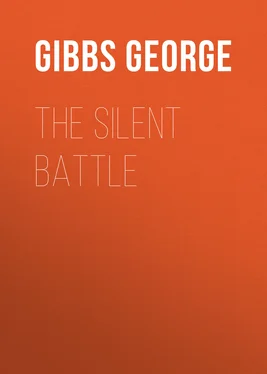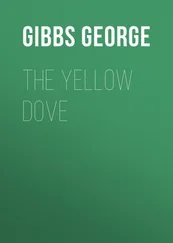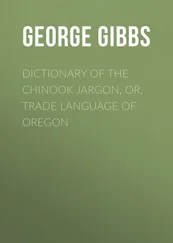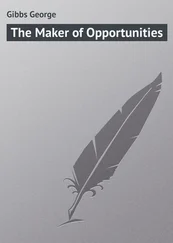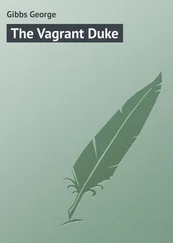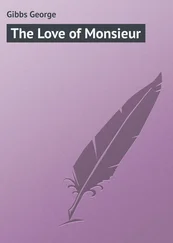George Gibbs - The Silent Battle
Здесь есть возможность читать онлайн «George Gibbs - The Silent Battle» — ознакомительный отрывок электронной книги совершенно бесплатно, а после прочтения отрывка купить полную версию. В некоторых случаях можно слушать аудио, скачать через торрент в формате fb2 и присутствует краткое содержание. Жанр: foreign_prose, foreign_antique, на английском языке. Описание произведения, (предисловие) а так же отзывы посетителей доступны на портале библиотеки ЛибКат.
- Название:The Silent Battle
- Автор:
- Жанр:
- Год:неизвестен
- ISBN:нет данных
- Рейтинг книги:5 / 5. Голосов: 1
-
Избранное:Добавить в избранное
- Отзывы:
-
Ваша оценка:
- 100
- 1
- 2
- 3
- 4
- 5
The Silent Battle: краткое содержание, описание и аннотация
Предлагаем к чтению аннотацию, описание, краткое содержание или предисловие (зависит от того, что написал сам автор книги «The Silent Battle»). Если вы не нашли необходимую информацию о книге — напишите в комментариях, мы постараемся отыскать её.
The Silent Battle — читать онлайн ознакомительный отрывок
Ниже представлен текст книги, разбитый по страницам. Система сохранения места последней прочитанной страницы, позволяет с удобством читать онлайн бесплатно книгу «The Silent Battle», без необходимости каждый раз заново искать на чём Вы остановились. Поставьте закладку, и сможете в любой момент перейти на страницу, на которой закончили чтение.
Интервал:
Закладка:
“To-morrow!” She looked up at him, and then at the frames of the lean-to, as though the thought that she must spend the night in the woods had for the first time occurred to her. A deep purple shadow was crawling slowly up from the eastward and only the very tops of the tallest trees above them were catching the warm light of the declining sun. The woods were dimmer now and distant trees which a moment ago had been visible were merged in shadow. Some of the birds, too, were beginning to trill their even-song.
“Yes,” he went on, “you see it’s getting late. There’s hardly a chance of any one finding us to-night. But we’re going to make out nicely. If you really insist on cleaning those fish–”
“I do—and on making some tea–”
“Then I must get the stuff for your bed before it’s too dark to see.”
He filled the saucepan with water at the stream, then turned back into the woods for the cedar twigs.
“The bed comes first,” he muttered to himself. “That’s what Joe would say. There’s caribou moss up on the slope and the balsam is handy. It isn’t going to rain to-night, but I’ll try to build a shelter anyway—boughs now—and canoe birches to-morrow, if I can find any. But I’ve got to hustle.”
Six pilgrimages he made into the woods, bringing back each time armloads of boughs and twigs. He was conscious presently of a delicious odor of cooking food; and long before he had brought in his last armful, she pleaded with him to come and eat. But he only shook his head and plunged again into the bushes. It was almost dark when he finished and threw the last load on the pile he had made. When he approached he found her sitting motionless, watching him, both creels beside her, her hand holding up to the fire a stick which stuck through the fish she had cooked. The saucepan was simmering in the ashes.
“How do they taste?” he asked cheerfully.
“I haven’t eaten any.”
“Why not?”
“I was waiting for you.”
“Oh, you mustn’t do that,” sharply. “I didn’t want you to wait.”
“You know,” she interrupted, “I’m your guest.”
“I didn’t know it,” he laughed. “I thought I was yours. It’s your saucepan–”
“But your fish—” she added, and then indicating a little mischievously, “except that biggest one—which was mine. But I’m afraid they’ll be cold—I’ve waited so long. You must eat at once, you’re awfully tired.”
“Oh, no, I’ve still got a lot to do. I’ll just take a bite and–”
“ Please sit down—you must , really.”
Her fingers touched the sleeve of his shirt and he yielded, sinking beside her with an unconscious sigh of relaxation which was more like a groan. He was dead-tired—how tired he had not known until he had yielded. She saw the haggard look in his eyes and the lines which the firelight was drawing around his cheek-bones, and at the corners of his mouth; and it came to her suddenly that he might not be so strong as she had thought him. If he was an invalid from the South, the burden of carrying her through the woods might easily have taxed his strength. She examined his face critically for a moment, and then fumbling quickly in the pocket of her dress drew forth a small, new-looking flask, which gleamed brightly in the firelight.
“Here,” she said kindly, “take some of this, it will do you good.”
Gallatin followed her motion wearily. Her hand had even reached the cap of the bottle and had given it a preparatory twist before he understood what it all meant. Then he started suddenly upright and put his fingers over hers.
“No!” he muttered huskily. “Not that—I—I don’t—I won’t have anything—thank you.”
And as she watched his lowering brows and tightly drawn lips—puzzled and not a little curious, he stumbled to his feet and hurriedly replaced a log which had fallen from the fire. But when a moment later he returned to his place, his features bore no signs of discomposure.
“I think I’m only hungry,” he mumbled.
She unhooked the largest fish from the stick and handed it to him daintily.
“There, that’s yours. I’ve been saving it for you—just to convince you that I’m the better fisherman.”
“I don’t doubt it,” he said soberly. “I’m a good deal of a duffer at this game.”
“But then,” she put in generously, “you caught more than I did, and that evens matters.”
They had begun eating now, and in a moment it seemed that food was the only thing they had lacked. As became two healthy young animals, they ate ravenously of the biscuits she had carried and all of the fish she had prepared, and then Gallatin cooked more. The girl removed the metal cup from the bottom of her flask and taking turn and turn about with the tiny vessel they drank the steaming tea. In this familiar act they seemed to have reached at once a definite and satisfactory understanding. Gallatin was thankful for that, and he was careful to put her still further at her ease by a somewhat obtrusive air of indifference. She repaid him for this consideration by the frankness of her smile. He examined her furtively when he could and was conscious that when his face was turned in profile, she, too, was studying him anxiously, as only a woman in such a situation might. Whatever it was that she learned was not unpleasing to her, for, as he raised his hand to carry the tea to his lips, her voice was raised in a different tone.
“Your hands!” she said. “They’re all cut and bleeding.”
He glanced at his broken knuckles impersonally.
“Are they? I hadn’t noticed before. You see, I hadn’t any hatchet.”
“Won’t you let me—hadn’t you better bathe them in the water?”
“A bath wouldn’t hurt them, would it?”
“I didn’t mean that. Don’t they hurt?”
“No, not at all. But I wish I had Joe’s axe.”
“Who’s Joe?”
“My guide.”
“Oh.”
She questioned no further; for here, she realized instinctively, were the ends of the essential, the beginnings of the personal. And so the conversation quickly turned to practical considerations. Of one thing she was now assured—her companion was a gentleman. What kind of a gentleman she had not guessed, for there were many kinds, she had discovered; but there was nothing unduly alarming in his manner or appearance and she concluded for the present to accept him, with reservations, upon his face value.
His body fed, Gallatin felt singularly comfortable. The problems that had hung so thickly around his head a while ago, were going up with the smoke of the fire. Here were meat, drink and society. Were not these, after all, the end and aim of human existence? Had the hoary earth with all its vast treasures ever been able to produce more? He took his pouch from his pocket, and asking if he might smoke, lit his pipe with a coal from the fire (for matches were precious) and sank back at the girl’s feet. The time for confidences, were there to be any, had arrived. She felt it in the sudden stoppage of the desultory flow of comment and in the polite, if appraising steadiness of his gaze.
“I suppose you have a right to know what I’m doing here,” she said flushing a little, “but there isn’t anything to tell. I left our camp—as you did, to fish. I’ve done it before, often. Sometimes alone—sometimes with a party. I—I wasn’t alone this morning and I—I—” she hesitated, frowning. “It doesn’t matter in the least about that, of course,” she went on quickly. “I—I got separated from my—my companion and went farther into the brush than I had intended to do. When I found that I had lost my way, I called again and again. Nobody answered. Then something happened to me, I don’t know what. I think it must have been the sound of the echoes of my own voice that frightened me, for suddenly I seemed to go mad with terror. After that I don’t remember anything, except that I felt I must reach the end of the woods, so that I could see beyond the barrier of trees which seemed to be closing in about me like living things. It was frightful. I only knew that I went on and on—until I saw you. And after that—” her words were slower, her voice dropped a note and then stopped altogether—“and that is all,” she finished.
Читать дальшеИнтервал:
Закладка:
Похожие книги на «The Silent Battle»
Представляем Вашему вниманию похожие книги на «The Silent Battle» списком для выбора. Мы отобрали схожую по названию и смыслу литературу в надежде предоставить читателям больше вариантов отыскать новые, интересные, ещё непрочитанные произведения.
Обсуждение, отзывы о книге «The Silent Battle» и просто собственные мнения читателей. Оставьте ваши комментарии, напишите, что Вы думаете о произведении, его смысле или главных героях. Укажите что конкретно понравилось, а что нет, и почему Вы так считаете.
